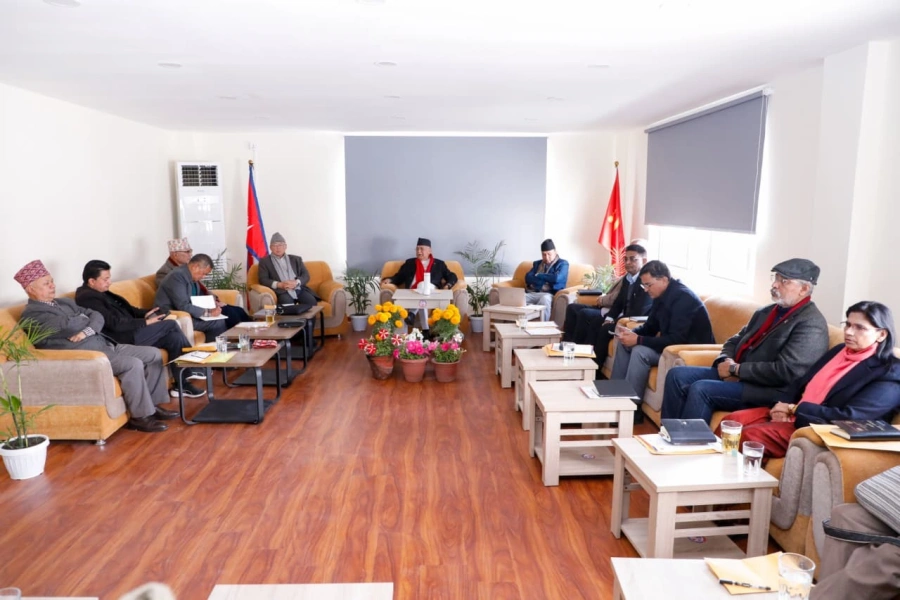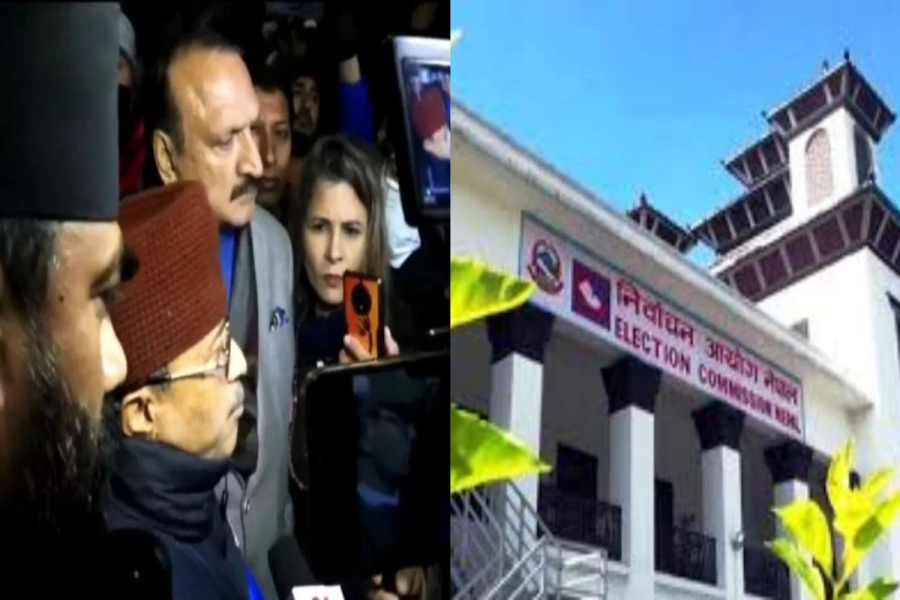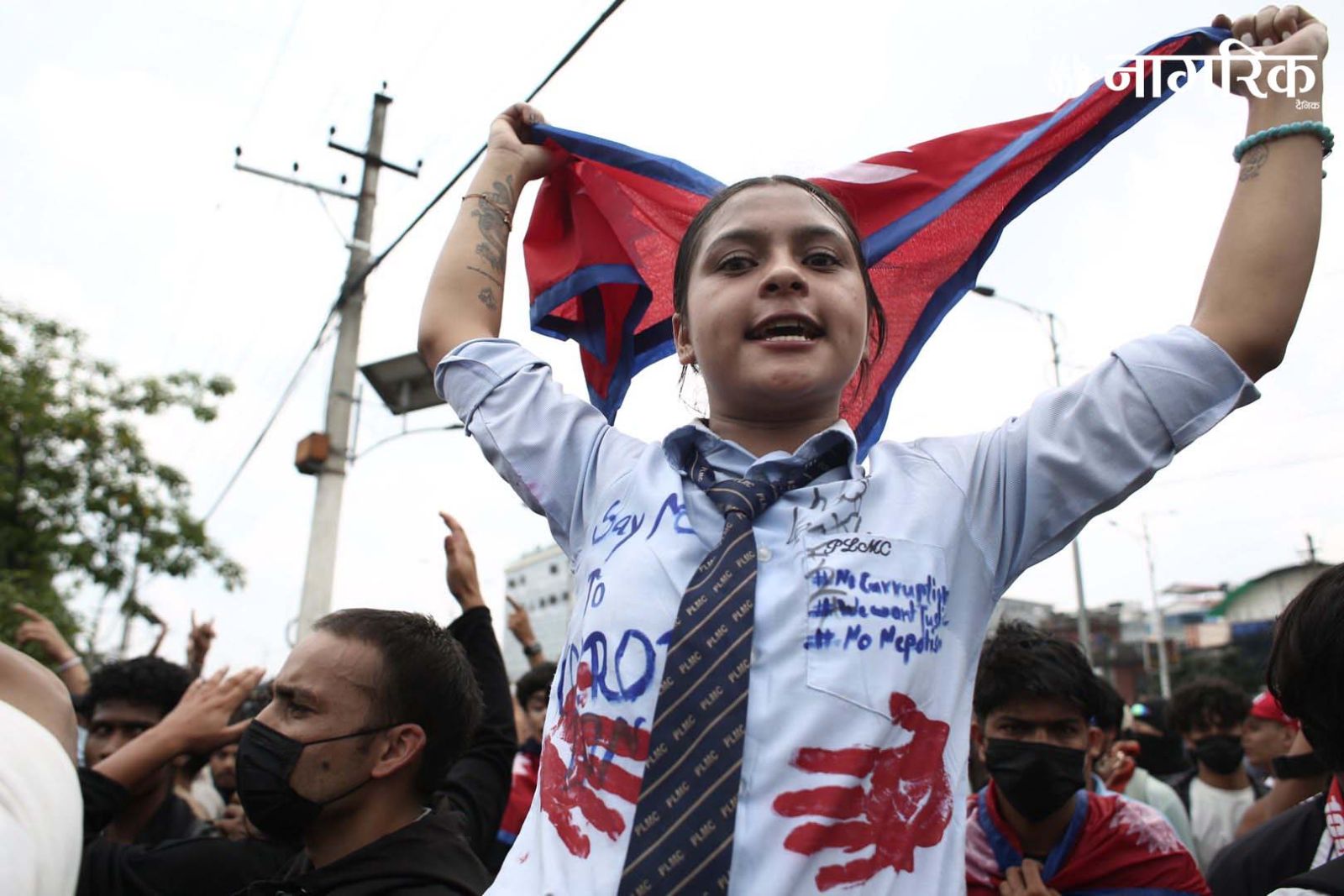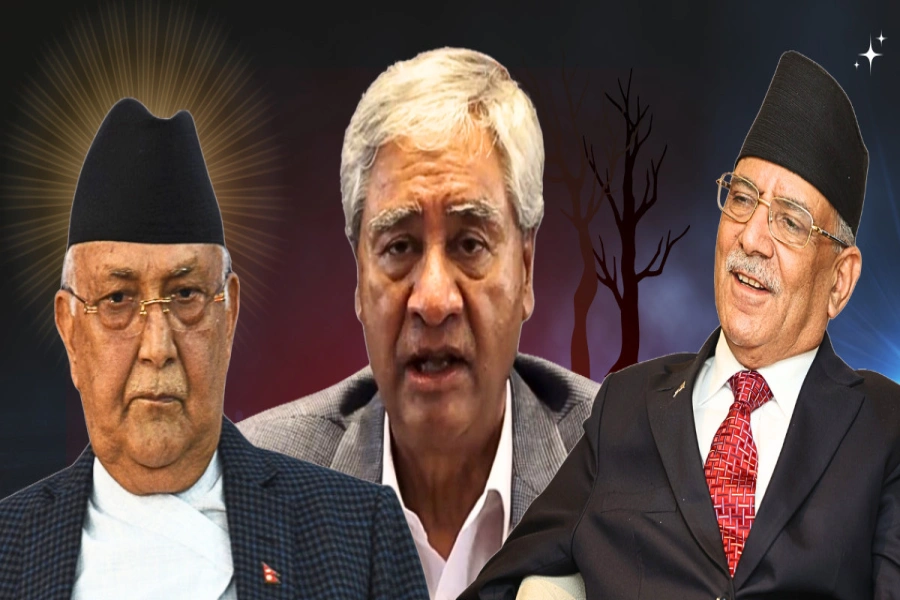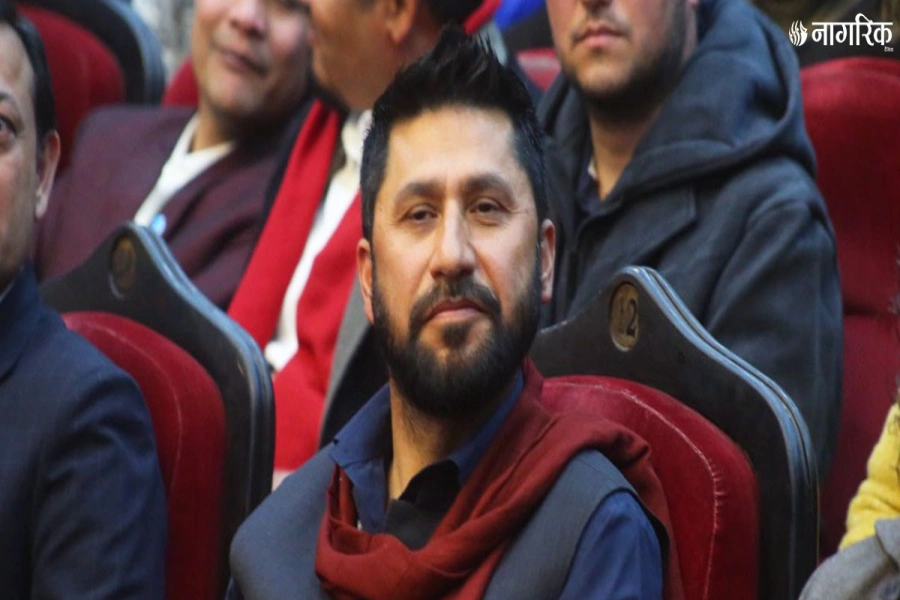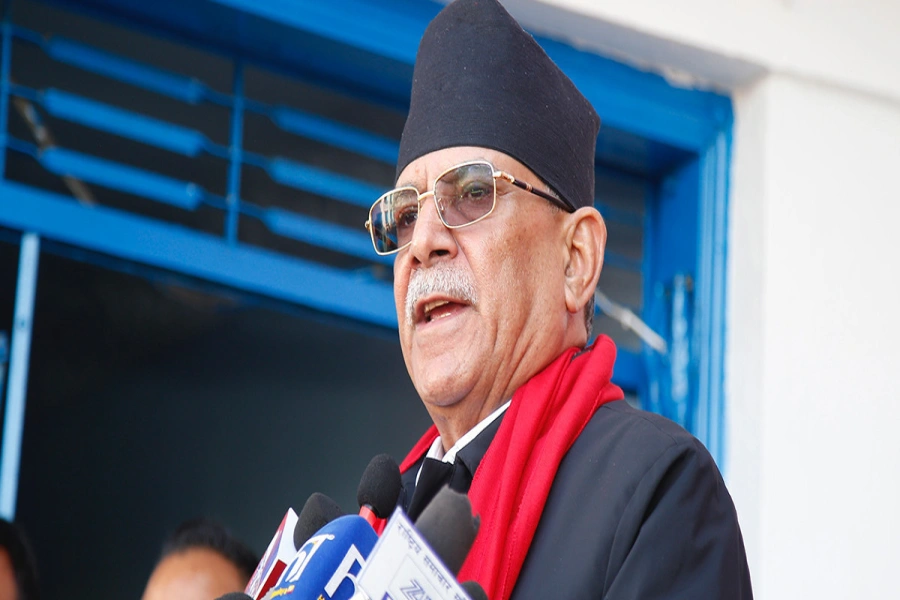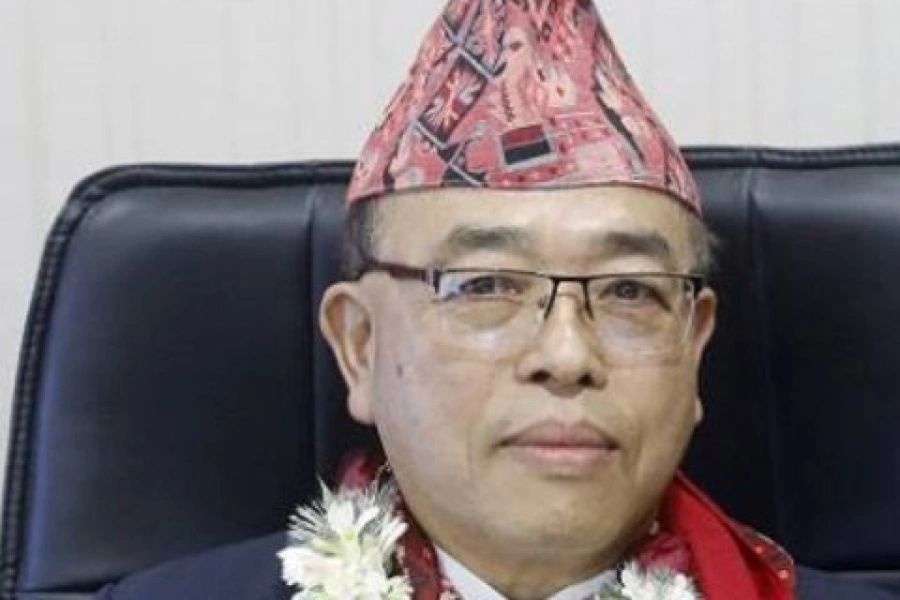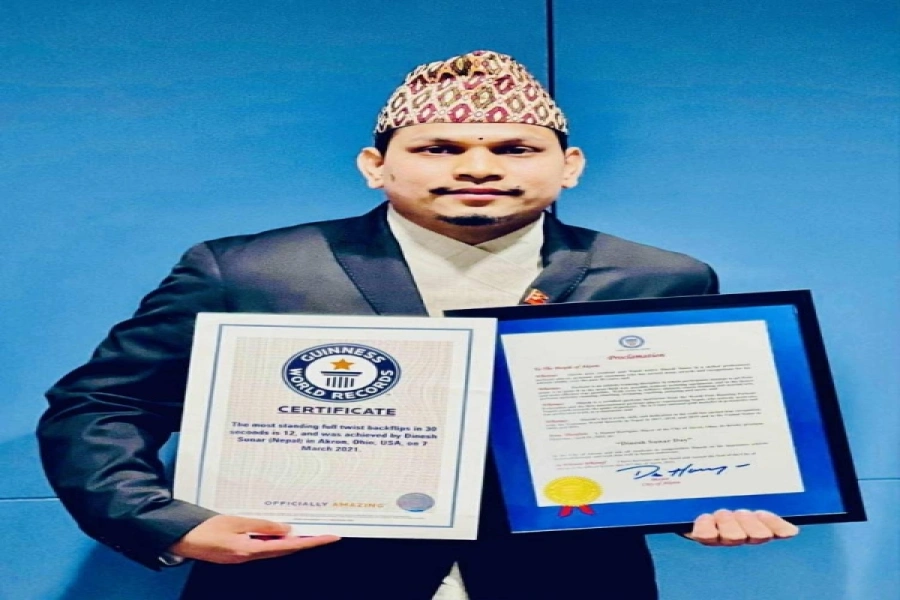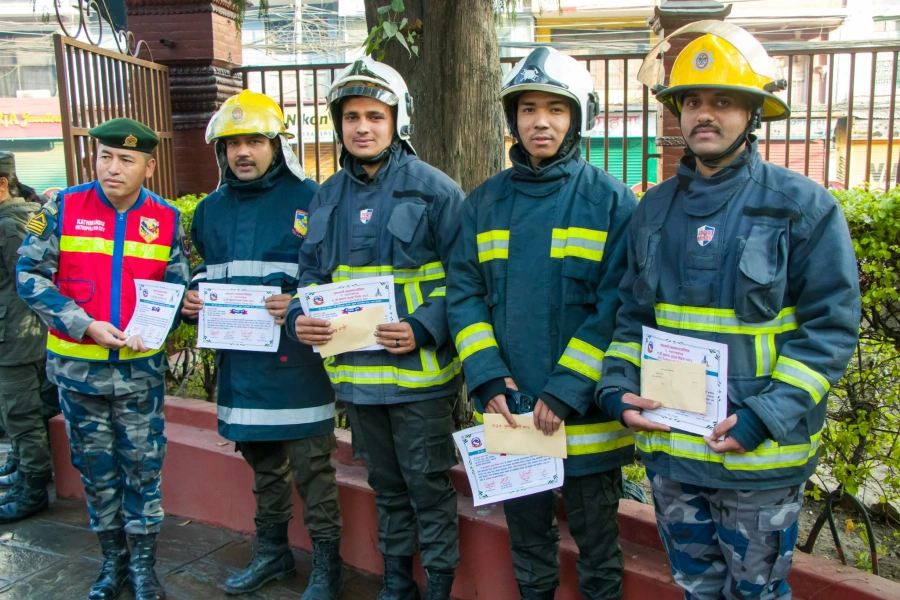We all panicked because my fufu – whose jankhu ceremony we were all there to celebrate – had started to get irritated. And it’s not advised to get any 77-year-old folk irritated, that too on her special day.[break]
You got to love us, the Newar folks. Throughout the year, our cultural calendar is filled up with festivals, cultural events and important rites of passage celebrations that entail long drawn-out feasts year after year. They all have their place, and all are extremely important. But one doesn’t turn 77 everyday, or do they?

The Jankhu celebration is one of those important rites of passage for every Newar folk should he/she be blessed with 77 years of good health. On their 77th year, 7th month, 7th day, and 7th hour and so on, and under the auspicious skies and in favorable time calculated within fractions, a big puja and a celebration are held to mark that momentous occasion.
This was the first for us. In our frantic rush to make things happen, and finish the ceremony within the allocated time to allow our aunt to take a breather, we forgot to keep tabs on the guy who was supposed to chant all the hymns and guide us throughout the rituals.
So, when we looked around, the Baje had already vanished into thin air. And we had all but nearly finished the part where the entire family members have to take blessings from the celebrated person. We had never heard of a priest pulling a fast one. We thought that was a hoot. We all joked around, with every last kaka, mama and sanima supplying his or her own version of their Missing Baje tales.

“You know,” said one kaka, “One time, during a ceremony, the baje mistakenly locked himself in the restroom. The ceremony was delayed by an hour.”
The room ringed with laughter.
Then an irritated kaki pranced in. “Why are you all laughing?” she asked.
We told her why.
“Let’s see for how long you can laugh on empty stomach,” she said.
“Huh?”
“The lunch will be served only when the ceremony is over,” she said.
The laughter stopped immediately. With a great rush, ignoring the threat of growling stomachs, the entire clan stomped out of the room, and off we went out into the rainy day to find the Baje.

Fifteen minutes later, one of my Sherlock Holmes kakas found the baje in another tole. He was conducting a shradha ceremony there.
“He was doing what?” we asked out loud. We could not believe that he had vanished from one ceremony to conduct another.
For me, it was quite unthinkable that the baje would sneak in from a jankhu ceremony to guide another soul to the afterlife.
It was soon overlooked as more complex rituals provided the perfect excuse for all of us to focus on something else. Soon, our officiating Baje was utterly lost in chanting Vedic hymns, and the rest of us egging him on to wrap it up quickly before someone collapsed from hunger.
“Try not to disappear this time, eh?” someone said. That got a laugh.
In about an hour’s time, the baje wrapped up his ceremony, reeled in his dakchinas and rushed off. From the untouched food in his plate, I guessed he hurried away to the house where he still had to complete the previous rituals of shraddha. I hoped that the soul of that person in waiting didn’t mind the wait.
Smith aka ‘Putali Baje’ passes away




